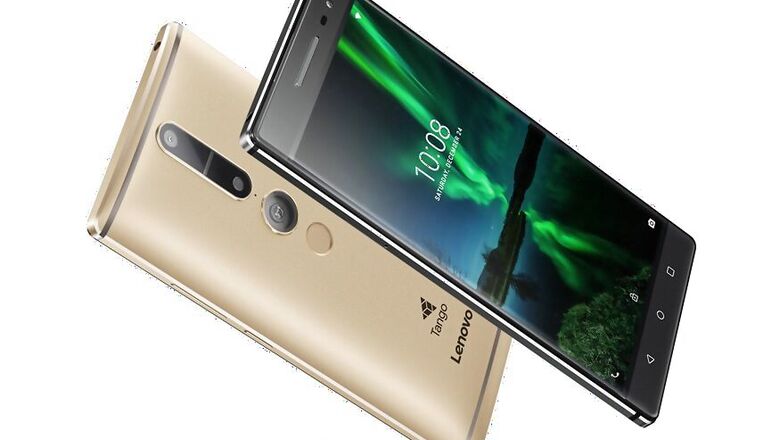
views
San Francisco: Lenovo unveiled the first consumer smartphone - Phab2 Pro - powered by Tango technology, a set of sensors and software from Google that senses and maps its surroundings to make a host smartphone augmented reality experiences possible.
This Lenovo smartphone will be clever enough to grasp your physical surroundings - such as the room's size and the presence of other people - and potentially transform how we interact with e-commerce, education and gaming.
Today's smartphones track location through GPS and cell towers, but that does little more than tell apps where you are. Tapping Google's 3-year-old Project Tango, the new Phab2 Pro phone will use software and sensors to track motions and map building interiors, including the location of doors and windows.
That's a crucial step in the promising new frontier in "augmented reality," or the digital projection of lifelike images and data into a real-life environment.
If Tango fulfills its promise, furniture shoppers will be able to use the Phab2 Pro to download digital models of couches, chairs and coffee tables to see how they would look in their actual living rooms. Kids studying the Mesozoic Era would be able to place a virtual Tyrannosaurus or Velociraptor in their home or classroom - and even take selfies with one.
The technology would even know when to display information about an artist or a scene depicted in a painting as you stroll through a museum.
Tango will be able to create internal maps of homes and offices on the fly. Google won't need to build a mapping database ahead of time, as it does with existing services like Google Maps and Street View.
Nonetheless, Tango could raise fresh concerns about privacy if controls aren't stringent enough to prevent the on-the-fly maps from being shared with unauthorised apps or heisted by hackers.
Lenovo says the Phab2 Pro will sell for $500 when it begins shipping in the US in August. The device is expected to be available throughout the world by mid-September, in advance of Apple's anticipated release of the iPhone 7.
The Phab2 Pro features a 6.4-inch display screen and four cameras to help perform its wizardry. Lenovo boasts the phone's sensors can capture about 2,50,000 measurements per second.
Despite all the fancy hardware, the key to the Tango phone's success is likely to hinge on the breadth of compelling apps that people find useful in their everyday lives.
Google previously released experimental Tango devices designed for computer programmers, spurring them to build about 100 apps that should work with the Phab2 Pro.
Both large and small tech companies are betting that augmented reality, or AR , will take off sooner than later. Microsoft has been selling a $3,000 prototype of its HoloLens AR headset.
Others, such as Facebook's Oculus and Samsung, are out with virtual reality, or VR, devices. Google has one coming as well through its Daydream project. While AR tries to blend the artificial with your actual surroundings, VR immerses its users in a setting that's entirely fabricated.
The AR and VR devices out so far invariably require users to wear a headset or glasses. In many cases, they also must be tethered to more powerful personal computers, restricting the ability to move around.
None of that is necessary with the Phab2 Pro. Instead, you get an augmented look at your surroundings through the phone's screen.
(With inputs from Associated Press)















Comments
0 comment